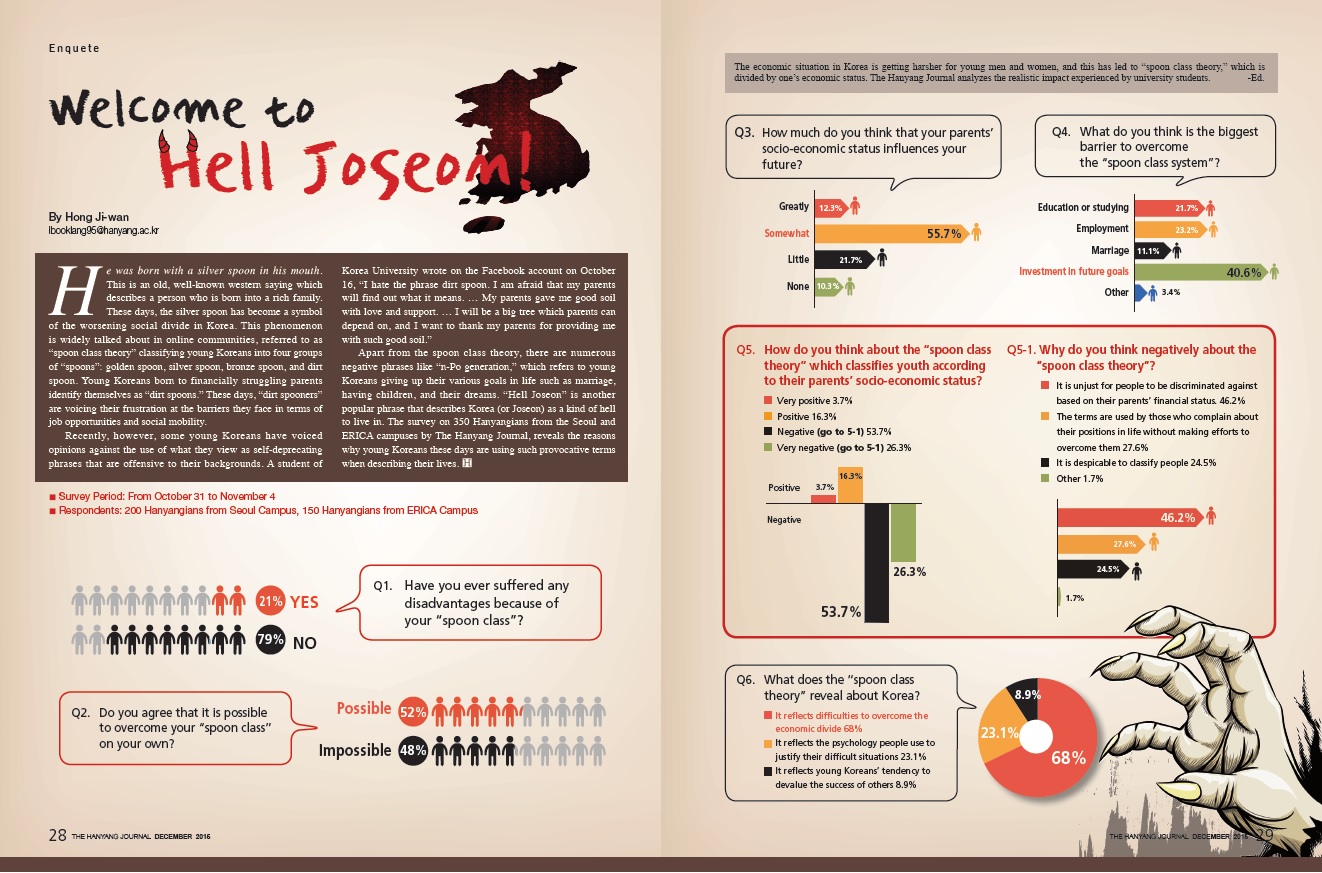
He was born with a silver spoon in his mouth. This is an old, well-known western saying which describes a person who is born into a rich family. These days, the silver spoon has become a symbol of the worsening social divide in Korea. This phenomenon is widely talked about in online communities, referred to as “spoon class theory” classifying young Koreans into four groups of “spoons”: golden spoon, silver spoon, bronze spoon, and dirt spoon. Young Koreans born to financially struggling parents identify themselves as “dirt spoons.” These days, “dirt spooners” are voicing their frustration at the barriers they face in terms of job opportunities and social mobility.
■ Survey Period: From October 31 to November 4
■ Respondents: 200 Hanyangians from Seoul Campus, 150 Hanyangians from ERICA Campus
Q1. Have you ever suffered any disadvantages because of your “spoon class”?
①Yes 21%
②No 79%
Q2. Do you agree that it is possible to overcome your “spoon class” on your own?
①Possible 52%
②Impossible 48%
Q3. How much do you think that your parents’ socio-economic status influences your future?
①Greatly 12.3%
②Somewhat 55.7%
③Little 21.7%
④None 10.3%
Q4. What do you think is the biggest barrier to overcome the “spoon class system”?
①Education or studying 21.7%
②Employment 23.2%
③Marriage 11.1%
④Investment in future goals 40.6%
⑤Other 3.4%
Q5. How do you think about the “spoon class theory” which classifies youth according to their parents’ socio-economic status?
①Very positive 3.7%
②Positive 16.3%
③Negative (go to 5-1) 53.7%
④Very negative (go to 5-1) 26.3%
Q5-1. Why do you think negatively about the “spoon class theory”?
①It is unjust for people to be discriminated against based on their parents’ financial status. 46.2%
②The terms are used by those who complain about their positions in life without making efforts to overcome them 27.6%
③It is despicable to classify people 24.5%
④Other 1.7%
Q6. What does the “spoon class theory” reveal about Korea?
①It reflects difficulties to overcome the economic divide 68%
②It reflects the psychology people use to justify their difficult situations 23.1%

